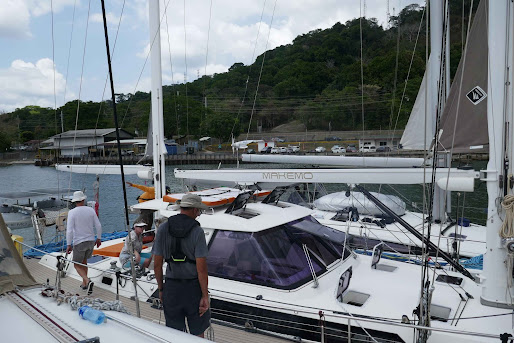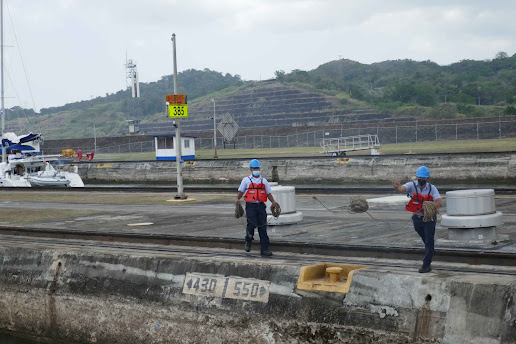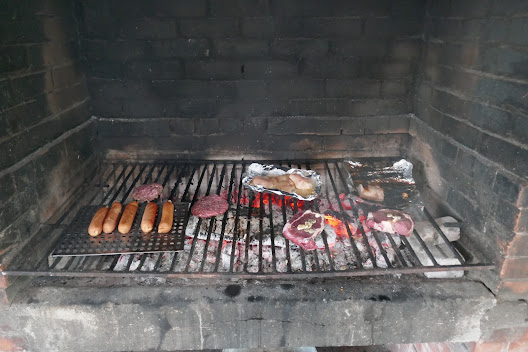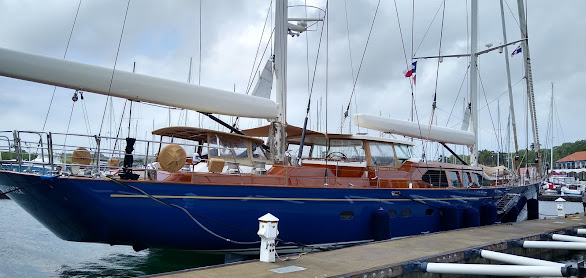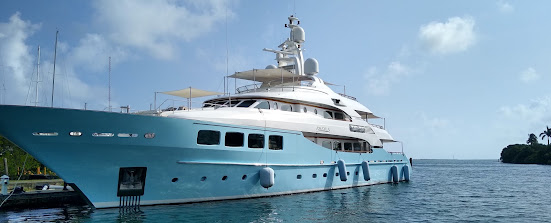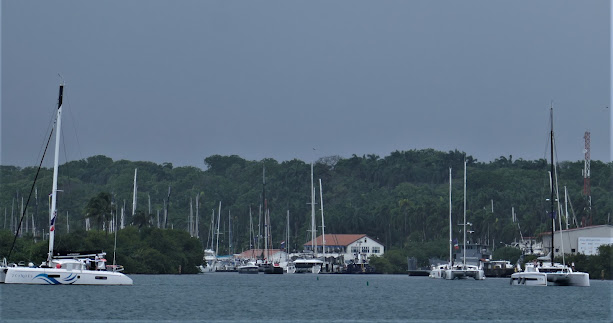A cold front approaches this part of the Caribbean, bringing
slightly cooler temperature and cloudy sky. We are scheduled to move our boat
to Shelter Bay Marina, about 30 miles west, closer to city conveniences. The
forecast calls for moderate wind and rain showers, pretty benign. A bit of
rain? We can handle that. We go offshore a few miles to stay away from the
larger waves that form as the land shoals. Wind on the beam at 15 knots. We go with
slightly reduced sails and are making good progress. Then the rain starts.
“Good thing the forecast doesn’t say there will be squalls”.
“I wonder what’s that big ugly patch of dark clouds with
lots of white-caps underneath.”
“Wow, that looks like a squall!!”
Preceded by a sudden drop in air temperature, the squall hits
with fierce wind and waves. The boat heels way over, the auto-pilot get
overwhelmed and gives up, letting the boat to head into wind to reduce the wind
pressure. Lots of scrambling to reduce sails. Whew, we get through our first
squall!!
Eliza at the helm battling gusty winds and following seas. She does a good job...almost as good as the autopilot!
One rain squall after another. Tired of reefing and unreefing, we just left the genoa deeply reefed. Still making good progress at 6 knots.A few hours later, we approach the Panama Canal entrance. The
marina is situated just inside the massive breakwater of the canal entrance,
and every ship intending to enter needs to get instruction from the canal controller
to get lined up. Giant cargo ships all around us, mostly anchored to wait for their
turn. We see a small warship making seemingly slow progress for the line up to
enter. Quick, lets get ahead of her!! Actually, visual speed is deceiving from
a distance. She’s a lot bigger and faster than it seem, not to mention probably armed to the teeth. We put our tail between
our shrouds and prudently headed off to follow the warship.
This warship racing in front of us to line up for entrance to the Canal.
It's two-way traffic at the breakwater; a massive freighter goes by. Whew, this is a bit close!
The Canal breakwater is a massive, two miles long man-made
barrier built to provide a huge sheltered harbor for ships lining up to transit
the canal. The breakwater works well for us: Just after we enter the harbor, another
massive squall hits. The sky darkens, great sheets of rain make it nearly impossible
to see, and big waves crash over the breakwater from the open-ocean side.
Inside the barrier, the water is flat.
A regatta of large catamarans is departing the marina for
their scheduled canal transit, and we are made to wait 40 minutes before the
marina is cleared for us to enter for our slip. Finally, after a fairly long
day, we are safely tied down at our slip, at this massive modern marina.









